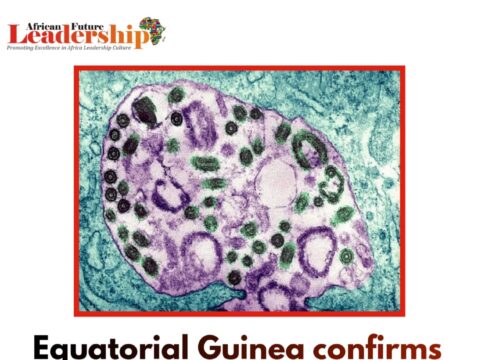Equatorial Guinea has confirmed the first outbreak of Marburg disease, a virus closely related to Ebola that can kill up to 88% of those it infects.
Although only one case has been confirmed, 16 people are suspected to have contracted the virus, nine of whom have died. More than 200 people have been quarantined.
Neighboring Cameroon has banned cross-border travel.
An hemorrhagic fever expert told newsmen that authorities are concerned about the outbreak, especially considering the country has “no filovirus experience”. He added that he understands healthcare workers have also been infected.
The World Health Organization is set to hold an emergency meeting about the outbreak on Tuesday afternoon.
The small Central African country tested for the virus following the unexplained deaths of at least nine people in the country’s western Kie Ntem Province over the last week.
Emergency response
Marburg is a severe, often fatal illness. It begins abruptly, with high fever, severe headache and severe malaise. Many patients develop severe haemorrhagic symptoms within seven days.
Marburg is transmitted from fruit bats and spreads among humans through direct contact with the bodily fluids of infected people, surfaces and materials.
READ MORE: Türkiye-Syria Quake Deaths to Top 50,000
Health experts are now racing to trace contacts of those affected and increase epidemiological surveillance efforts.
Efforts are also under way to mount an emergency response, with the World Health Organization (WHO) deploying epidemiologists and infection prevention measures.
Marburg was first discovered after a lab accident in the German town of Marburg in 1967. Thirty-one people were infected and seven died while conducting research on monkeys, with the virus spreading to Frankfurt and Belgrade in Serbia.
Subsequently, outbreaks and sporadic cases have been reported in Angola, the Democratic Republic of the Congo, Kenya, South Africa and Uganda. These are naturally occurring, caused by bats.
“Marburg is highly infectious. Thanks to the rapid and decisive action by the Equatorial Guinean authorities in confirming the disease, emergency response can get to full steam quickly so that we save lives and halt the virus as soon as possible,” said Dr Matshidiso Moeti, the WHO Regional Director for Africa.
There are no vaccines or antiviral treatments approved to treat the virus. However, supportive care – rehydration with oral or intravenous fluids – and treatment of specific symptoms improves survival rates.
A range of potential treatments, including blood products, immune therapies and drug therapies, as well as vaccine candidates with early trial data, are being evaluated.




